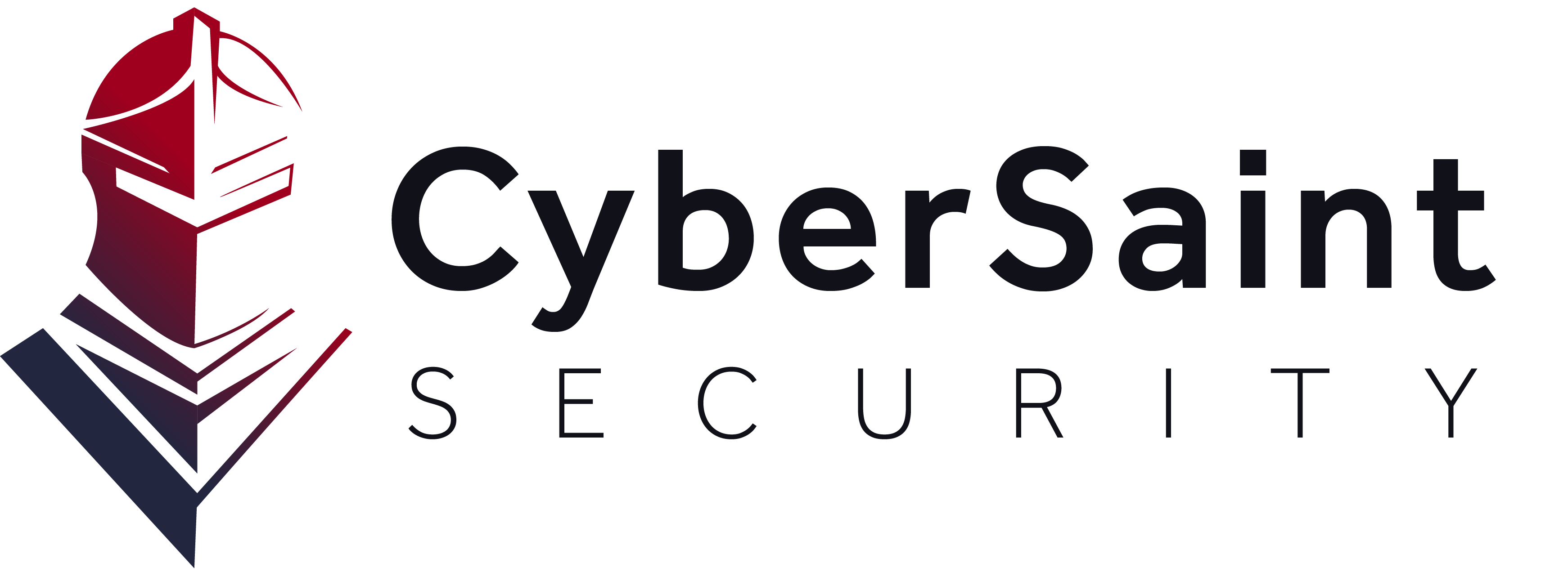LogMeIn. iRobot. Hopper. Catalant. For Boston tech aficionados, these names sound as familiar as old friends—And definitely have a better recall than their original names: 3 AM Labs, Artificial Creatures, OpenPlaces and HourlyNerd.
With things changing so fast in the tech and startup world, it’s easy to forget the origins of companies making revenue and headlines today. Often, the evolution of a name reveals something unexpected, or quirky. At other times, it shows the company’s trajectory going from uninteresting to something noteworthy. Did you know, for example, that the name ‘SmartBear’ pays homage to American novelist John Irving? Or why the ‘HubSpot’ name had to be made of seven letters, nothing more, nothing less?
The stories behind the Boston startup nomenclature are listed in the following 24 anecdotes, which were selected among the most recognizable names in Boston tech as well as because of their strong storytelling potential. From the Greek goddess of wisdom to New York trains, you’ll find a gallery of inspirations for your next endeavor.
For this story, what prompted our curiosity is a recent statement by Boston-based social media analytics company Crimson Hexagon; in October, the company said it will be forced to ditch ‘the coolest company name in the world’ following a merger with British competitor Brandwatch.
We can’t say for sure whether or not the Jorge Luis Borges-inspired name Crimson Hexagon is ‘the coolest in the world.’ But it’s certainly not the only literary reference we found in the names of Boston tech companies. Also, there’s a significant cluster of startups named after food (think Carrot, Cake, Peach). A bunch of companies took inspiration from the animal kingdom too (Datadog, Magpie, Lazy Bear Tea, Owl Labs); a few others think less is more (Tamr, Mabl, Dyn, Whoop, Keel) and at least three liked a call to action (Lose It!, Just Add Cooking, LogMeIn).
In startupland, there’s a popular saying that you haven’t really made it until your company name becomes a verb. It happened to Google, Slack, Uber. Is it going to happen to local transportation startup Skedaddle? We’ll have to wait and watch.
In the meantime, startup founders need to keep in mind a few things before naming their company. “Firstly, the domain has to be available and free of trademark issues,” said Yossi Naar, chief visionary officer and co-founder of Cybereason. No surprise here that in many of the stories you’ll read below, web domain availability played a huge role in the final say.
But the name “also needs to be easy to spell and pronounce, and it needs to say something about who [you] are,” Naar added.
We might add, pay attention to sounds. You may like the word ‘Cadabra’ as a name because it sounds like ‘Abracadabra’ to you; but if other people hear ‘cadaver,’ you may want to settle on a different option—like Amazon.
And now, without further ado…
Accion Systems
Accion System, a local aerospace startup that is manufacturing a new ion engine for small satellites, is named after the “Summoning Charm” in the Harry Potter saga. In J.K. Rowling’s novels, the ‘Accio’ spell brings an object to the wizard; moreover, ‘accion’ is a contraction of ‘accelerate’ plus ‘ion’ and it means action or movement in Spanish.
Acquia
When starting the company, Acquia Co-Founder and former CEO Jay Batson wanted a name that wasn’t a word from the English dictionary. “I had also always wanted to use something from the Navajo code talker dictionary from World War II as a name for a company or project,” he wrote in an email. “That resource had no words describing a network or the world wide web, which was to be the company’s focus. But, the word ‘ah-kwee-ah’ stood out, as it meant ‘(to) locate,’ and most web users are trying to locate information when browsing.” Since the Navajo language was an unwritten language, Batson needed an English spelling. Aquia was in-use by a foreign manufacturing company, so the domain wasn’t available. “By adding a C, the name Acquia was born,” Batson concluded.
AppNeta
The company lives at the intersection of business critical applications and the networks that enable them. “When we formed the new business, we wanted this application and network nexus to be front and center, so ‘App’ and ‘Net’ made sense,” Amanda Bohne, vice president of marketing, explained. “Unfortunately, that name AppNet was already taken by a web design firm, so after some creative brainstorming we decided to add an ‘a’ to the end to denote ‘action’… But most importantly, the domain was available too!”
Athenahealth
Athenahealth began as Athena Women’s Health, a women’s health and birthing clinic in San Diego. The name stems from Athena, the Greek goddess of wisdom, as the company wanted to align itself with “a female symbol of strength,” given its focus and model. And although athenahelth eventually transitioned from birthing clinic to healthcare IT company, it kept its name for its association with wisdom, strength and courage.
Brightcove
Video tech company Brightcove is named after Bright Cove Harbor, located in Cape Cod, Mass., where founder Jeremy Allaire frequently kayaked.
Carbon Black
Early on in determining the company name, the founding team wanted to demonstrate that they could offer foundational or elemental insight into an organization’s computers.
The notion of an ‘elemental’ insight led to ‘carbon,’ which is the foundational element of life. ‘Carbon’ also worked well since the product essentially produced a ‘carbon copy’ record of everything that was occurring on a computer for searching. “No other names were given serious consideration,” Ryan Murphy, a member of Carbon Black’s founding team, wrote in an email.
Carbonite
The name of data protection company Carbonite is inspired by Han Solo – who remained trapped in the Carbonite substance during a period of the Star Wars trilogy. The company imagined a product that would freeze consumer data in time. This resulted in the company’s first product, Carbonite Safe, which backs up data to the cloud, encrypts that data and allows users to roll back to a certain point in time and restore clean files, should they become infected with ransomware or other virus. The Star Wars theme is reflected in the headquarters in Downtown Crossing, where meeting rooms and destinations are inspired by the iconic film.
Catalant
In July 2016, a Boston startup named HourlyNerd pivoted and decided to rebrand. “We were doing a lot more than providing talent on demand,” said Rob Biederman, co-CEO and cofounder of Catalant. “We wanted a name than sounded a little more enterprise-friendly… that sounded familiar, but was a new word.” In the end, Biederman said, they also wanted a name that created a little bit of mystery and intrigue, so they completed made up a word: Catalant, a contraction of the expression ‘catalyst for brilliant talent.’ “It feels like a company you’ve known forever, like Accenture,” Biederman said.
Cybereason
“We wanted to create human like reasoning in cyber security,” Yossi Naar, chief visionary officer and co-founder of Cybereason, wrote in an email. “We choose to add cyber to help define what we are about… The second part – reason – has to do with what we envisioned for our company… We searched for various synonyms around logic, intelligence and finally settled on the word ‘reason’ as the best representative for what we were trying to say.” By the way, the company anticipated that some people wouldn’t know if they should use one or two ‘Rs,’ so it bought both ‘cybereason’ and ‘cyberreason’ web domains.
CyberSaint
CEO George Wrenn originally had the idea for CyberSaint thinking it would be a non-profit; he thought he could train hundreds of qualified security professionals (a. k. a. ‘CyberSaints’) to think about security compliance and risk management simply and holistically.
CyPhy Works
The name of Danvers, Mass.-based CyPhy Works is a contraction of ‘Cyber Physical’—meaning “essential to robots,” the company explained.
Elsen
The name of fintech company Elsen was inspired by a woman the founders knew from their time at Northeastern, where they met and started the business. After brainstorming on what they wanted the company and name to stand for, they decided they wanted a name that matched all the qualities she has. They considered non-traditional names – like Elsa, Excela, etc. – and ultimately picked Elsen.
Formlabs
Max Lobovsky, Formlabs CEO and co-founder, said that they wanted to use a word that meant ‘shape’ or ‘make.’ “One of the other founders favorite names was ‘Protodyne,’ perhaps because it sounded like a sci-fi megacorp,” a company’s spokesperson wrote in an email. In the end, they come up with lots of crazy ideas, but settled on one of the very first that was suggested.
Hopper
Back in 2007, the travel startup was incorporated with the name OpenPlaces, but the co-founders didn’t want to keep that name. They wanted a name that was short and easy to remember, invoking the idea of travel without relying on the words ‘travel’ or ‘trip.’ The company’s CTO and co-founder, Joost Ouwerkerk, thought of the name Hopper and it quickly became a favorite. The only issue was that someone owned the hopper.com domain, but it was eventually secured. Other early options were Fivebean, Oble, Jab, Kiboo, Odeo and Kaboo.
HubSpot
“I got the HubSpot.com domain in February 2005, but HubSpot wasn’t officially launched until June 2006,” Dharmesh Shah, CTO and Founder of HubSpot, wrote in an email. “I wanted to pick a name that had seven letters and where I could get the phone number (888-HUB-SPOT). Yes, I’m weird, because we didn’t have any customers yet and nobody was calling.” Shah, who said he owns over 300 domain names, added that he liked the word ‘hub’ because he’s “a bit obsessed” with networks and graph theory. He also wanted HubSpot to be synonymous with “the place to go to connect your company to customers, partners and employees.”
iRobot
During iRobot’s beginnings, the company was briefly named Artificial Creatures Inc.. However, iRobot was officially incorporated in 1990 as IS Robotics. As the 90s progressed, Colin Angle, iRobot’s Chairman & CEO, and the company’s other founders recognized that the internet would play a major role in the development of robotics moving forward. With this, it was decided that the ‘i’ in iRobot’s name would signify ‘internet connected robots’, and the name was born. The name also nicely pays homage to Isaac Asimov’s I, Robot. The company officially changed its name from IS Robotics to iRobot in the year 2000.
LogMeIn
In its early days, LogMeIn was established in both Boston and Budapest, Hungary. One of the founders, Mike Simon, an expat living in Budapest, had worked in the tech space for many years, collaborating with the company’s other co-founder, Marton Anka, since the mid-1990s. In 2003, Anka realized he was frustrated with one aspect of his current role – his 3 a.m. drives from Buda to Pest to reset a particular server. In an attempt to solve his problem, he wrote his own code. Simon was impressed with Anka’s work and realized that, if Anka – a tech guy – found the other technologies to be too complex, the market must be ripe for a simpler, faster, and more secure way of creating remote access.
Thus, RemotelyAnywhere was born as the first product of ‘3 AM Labs, Inc.,’ LogMeIn’s original name. To effectively bring the product to the masses, Simon and Anka needed to incorporate in the United States. Due to their previous connections in Boston, they settled in a small office 11 miles outside of Boston in Woburn, Mass. They grew the company with the remote access product LogMeIn. Due to the success and popularity of the LogMeIn product, the company name officially changed from ‘3 AM Labs’ to LogMeIn in 2006.
Rapid7
Rapid7 was named based on New York’s Rapid Transit system’s ‘Rapid7’ train. When the company first launched, it was based in Midtown, New York. Founders Alan, Tas and Chad traveled daily into the city on New York’s Rapid Transit system’s ‘Rapid7’ train (you might notice the company’s logo looks a bit like a bullet-train). Today, the company said the name embodies its commitment to rapidly responding to customers’ needs.
Salsify
“Our founders were looking for a way to communicate the idea of one source of truth spreading to many places,” Peter Crosby, senior director of corporate marketing at Salsify, wrote in an email. “They came up with the idea of a root vegetable – a salsify, in this case, which is a version of a carrot. And the url was available, which is the moment of truth for all startup names.” At first, Crosby explained that the founders thought of ‘dandelion’ as a potential name, because “Dandelion flowers are beautiful and fun. You blow on the seeds and they go everywhere. We liked that image for product experiences.” But dandelion is a long word and, most importantly, the domain dandelion.com was not available. “Salsify is a cousin to the dandelion and is a super cool name; you think spicy salsa, dancing, etc.,” Crosby said. “Jason [Purcell, cofounder and CEO] found it late at night in Taiwan when jetlagged, unable to sleep and cruising wikipedia.”
SmartBear
The origin of ‘SmartBear’ comes from John Irving’s The Hotel New Hampshire, a surreal novel in which a ‘smart bear’ plays an important role. In 2003, the original company founder, Jason Cohen, a John Irving’s fan, was pressured to change the name, some thinking that potential customers wouldn’t take them seriously “with such a silly name,” a company’s spokesperson wrote. But the young company received a $50,000 purchase order from Intuit – and the name stuck.
Toast
While choosing its name, the company noticed that ‘Toast’ has two food and beverage meanings (1. to toast drinks, 2. to toast bread), and they knew they wanted to develop a solution for the restaurant industry.
Turbonomic
Prior to being Turbonomic, the company was known as VMTurbo (‘VM’ standing for virtual machine, Turbo meaning ‘faster’ or ‘more efficient’ way to run something). During rebranding, the company kept the ‘Turbo’ part since its technology still remains the same at the core – making applications run faster, more efficiently and intelligently. “Our technology is based off of economic principals of supply and demand… ‘nomic.’ Our tech also enables application workloads to self-manage in real-time, which we associate with the word ‘autonomic,’ meaning that they operate involuntary without human intervention (another ‘nomic’). Pull it all together and we have Turbonomic,” a company’s spokesperson explained.
Wasabi
Wasabi wanted to have a name that resonates with something ‘hot,’ a company’s spokesperson explained. “Most automatically, you think of Wasabi as the spicy Japanese horseradish with sushi. However, ‘hot’ storage is data that you need to access right away, where performance is at a premium.”
Wayfair
“We hired a branding agency and the domain was available,” a company’s spokesperson wrote in an email. Alright then!
Originally seen on the AmericanInno blog.










